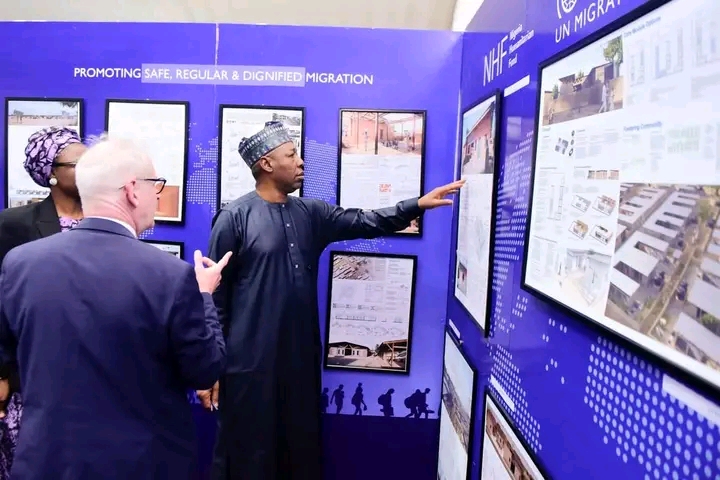Babagana Umara Zulum, the Governor of Borno State, has emphasized the priority of his administration to facilitate the resettlement of internally displaced persons (IDPs) to their original communities.
This initiative involves the construction of additional houses across the state. Governor Zulum expressed optimism about the improved security situation in Borno State, citing a remarkable 90% enhancement.
During a housing design award ceremony called “Home after Crisis,” organized by the International Organization for Migration (IOM), Governor Zulum, serving as a special guest, underscored the commitment to rebuilding communities in a dignified manner, aligning with the Kampala Convention.
He mentioned that a significant portion, around 90%, of houses in the state had been destroyed over more than a decade of insurgency.
Governor Zulum acknowledged the efforts of his predecessor, now the Vice President of Nigeria, and himself in rebuilding over 40% of the destroyed houses in the past 12 years.
He assured the public of the necessary political will to collaborate with organizations like IOM in constructing more homes for displaced families.
Expressing his commitment to this cause, Governor Zulum stated, “The government of Borno and that of the Northeast would provide the political will needed to partner with IOM and other organizations to build more homes for the families of displaced communities.”
He also hinted at an impending agreement with IOM to solidify their partnership and enhance the construction of houses.
In attendance at the event were notable figures such as Engr. Bukar Talba, the Member representing Marte, Monguno, and Nganzai at the House of Representatives, Dr. Jamila Bio Ibrahim, the Minister of Youth, Rtd. Gen. Paul Tarfa, and the Chairman of the Board of the Northeast Development Commission (NEDC), among other officials.
The IOM’s Chief of Mission to Nigeria, Laurent De Boeck, shared details about the housing design competition, highlighting the participation of 1,600 designers, architects, and engineers from over 100 countries.
The competition awarded a total of 10,000 euros, with Nigerian architects securing the first and second prizes, while a team of German architects clinched the third prize, signaling a global collaboration in addressing housing challenges after crises




